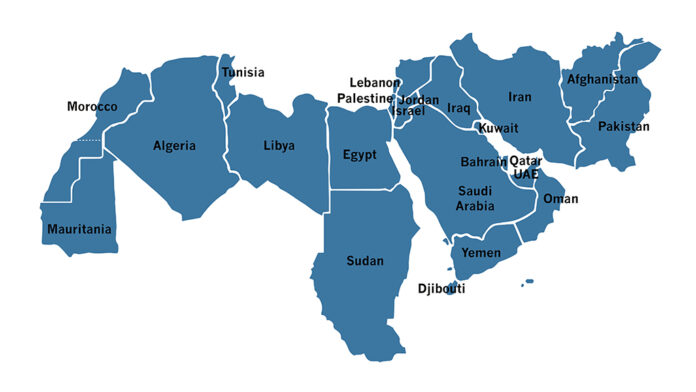Author: Dalia Ghanem
Affiliation: Carnegie Middle East Center/ Beirut
Organization/Publisher: Carnegie Middle East Center
Date/Place: June 1, 2020/ Beirut, Lebanon
Type of Literature: Article
Number of Pages: 8
Keywords: Civil-Military Relations, MENA Region, Authoritarian Regimes
Brief:
Middle East and North Africa (MENA) region has seen various political shifts over the past decade. Due to economic deprivation, the masses came out in the streets to protest against authoritarian and despotic regimes. These dictatorial regimes ensure their sustainability and legitimacy over the public with the help of military. Therefore, civil-military relations has remained imbalanced in favor of military throughout the MENA region’s history. This study analyzes the uprisings in Algeria, Sudan, and Iraq as second waves of the Arab Spring that compelled the repressive regimes to leave crown. The role of the military in the second wave of the Arab Spring is identical in all three cases. In Algeria, Sudan, and Iraq the military stood by the masses instead of the respective regimes. According to this article, military intervention in this region is highly influenced by internal and external variables. Size of military, professionalism, financial and economic interests, intra-institution rivalry, culture, and image are considered as internal variables. External variables include strategic culture of state, legitimacy of the President, and the effectiveness of political institutions. The study uses the term “rational calculus” to describe the military attitude during uprisings, and their maneuvering during the second wave of the Arab Springs to ensure their political and corporate status, after they analyzed the pulse of the masses.
By: Muhammad Taimoor Bin Tanveer, CIGA Senior Research Associate




